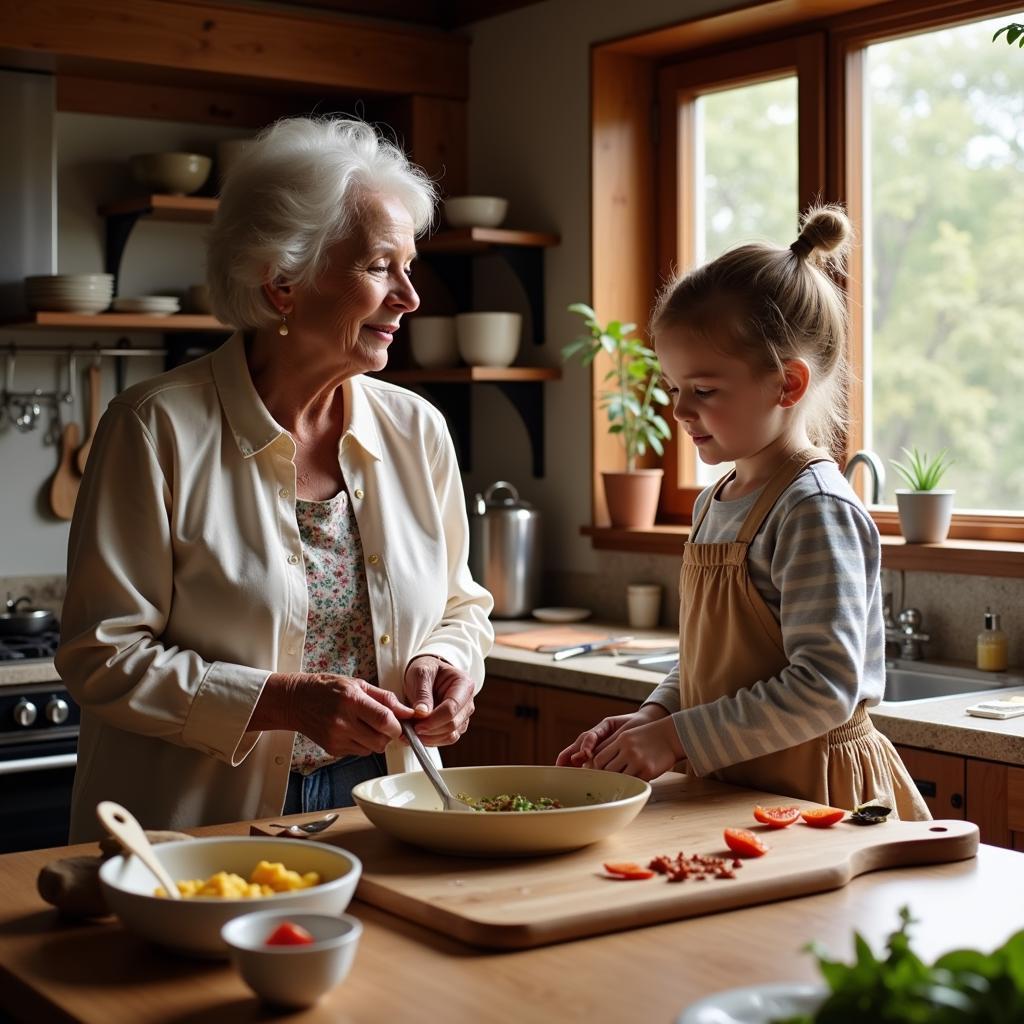Describing cooking experiences and favorite meals is a common topic in IELTS Speaking tests. This theme frequently appears in all three parts of the speaking exam, particularly in Part 2 cue cards. Let’s explore how to answer these questions effectively to achieve a high band score.
Part 1: Introduction and Interview Questions
Common questions you may encounter:
- Do you like cooking?
- How often do you cook?
- What’s your favorite type of food to prepare?
- Who taught you how to cook?
Sample Answer (Band 8-9):
“I absolutely adore cooking, especially on weekends. I’d say I cook practically every day, but I particularly enjoy preparing elaborate meals when I have more time. My signature dish is homemade pasta with seafood sauce, which I picked up during my travels in Italy. I actually learned the ropes from my grandmother, who was an absolute wizard in the kitchen.”

Part 2: Cue Card
Talk about a favorite meal you enjoy cooking
You should say:
- What the meal is
- How you learned to cook it
- Why you enjoy cooking it
And explain why this meal is special to you
Sample Answer (Band 8-9):
“I’d love to tell you about my signature dish – traditional Vietnamese Pho. This hearty and aromatic soup holds a special place in my heart as it connects me to my cultural heritage.
I initially learned to make it by closely observing my mother, who would spend hours perfecting the broth. The process is quite intricate – it involves simmering beef bones for at least 6 hours with an array of spices like star anise, cinnamon, and cardamom. The technique of preparing the rice noodles and garnishing the soup with fresh herbs is also crucial.
What makes this dish particularly enjoyable to cook is the therapeutic nature of the process. There’s something incredibly satisfying about watching the clear broth gradually transform into a rich, flavorful base. The way the aromas permeate throughout the house creates an atmosphere that takes me back to my childhood.
This meal is especially meaningful to me because it’s more than just food – it’s a representation of my family’s legacy. Every time I prepare it, I feel like I’m preserving a piece of our tradition and passing it on to the next generation.”
Similar topics you might be interested in include describe a dinner you enjoyed with family or friends and describe a dish you like to cook and why.
Part 3: Discussion Questions
Q1: How have cooking habits changed in recent years?
Band 8-9 Response: “There’s been a dramatic shift in cooking habits, largely attributed to technological advances and changing lifestyles. People are increasingly gravitating towards quick, convenient meals while simultaneously showing interest in artisanal cooking methods. The rise of cooking apps and online tutorials has revolutionized how people learn to cook, making it more accessible and interactive.”
Q2: Why do some people prefer eating out to cooking at home?
Band 8-9 Response: “This preference stems from various factors, including time constraints and the desire for variety. Many professionals find it more cost-effective in terms of time management. Additionally, dining out offers an experience that extends beyond just the food – it provides opportunities for social interaction and exposure to diverse cuisines.”
For more insights on this topic, you might want to check out describe a meal that was special to you.
Key Vocabulary and Expressions
- Culinary expertise /ˈkʌlɪnəri eksˈpɜːtiːz/ – cooking skills
- Time-honored recipe /taɪm ˈɒnəd ˈresɪpi/ – traditional recipe
- To master the art of /ˈmɑːstə ði ɑːt ɒv/ – to become very skilled at
- From scratch /frɒm skrætʃ/ – making something from basic ingredients
- To perfect (a dish) /tə pəˈfekt/ – to make something as good as possible
These expressions will help demonstrate your linguistic range when discussing cooking-related topics in your IELTS Speaking test.
describe an indoor activity you enjoy and describe a recent memorable family meal offer additional perspectives on related topics.